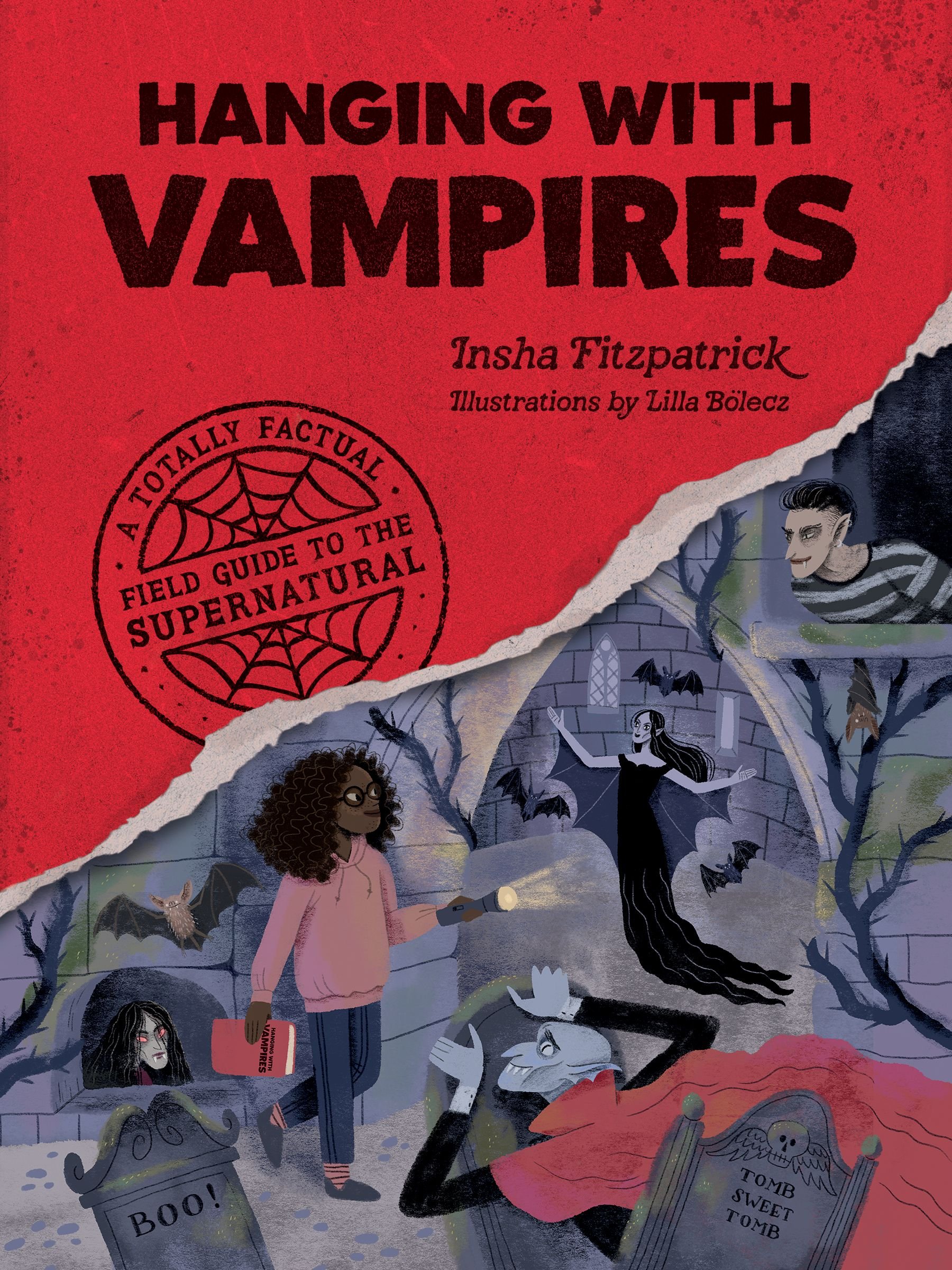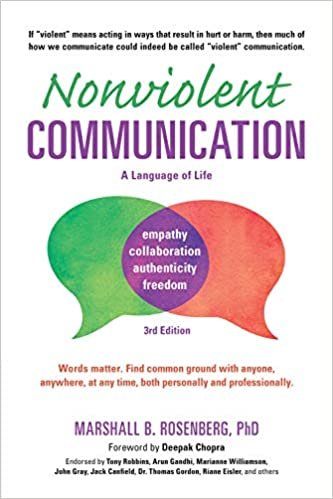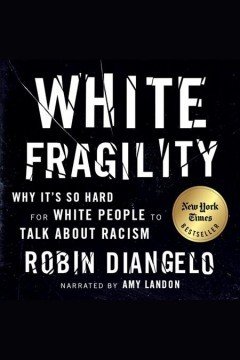The posts in this section were imported from my previous blog host. Anything posted prior to 4/22/23 can be found here. Use the search function above to search by book title, author, genre, age category, or whatever else you’d like to search by to find what you’re looking for. Unfortunately, some of the easier to search functions (like tag clouds, or my filed listings of reviews by author or genre) did not transfer so great. So this is what I have. If you have any questions, feel free to contact me.
Hanging with Vampires by Insha Fitzpatrick
 Pub Date: March 28, 2023Publisher: Quirk BooksAuthor: WebsiteInfo: Goodreads
Pub Date: March 28, 2023Publisher: Quirk BooksAuthor: WebsiteInfo: Goodreads
Are vampires real? Who was Vlad the Impaler? Do vampire bats ever feed on humans? Find out in Hanging with Vampires, a field guide for the curious and the adventurous. Crack open the lid on this guide and you’ll get:Bloodcurdling vampire mythology! What exactly is a vampire, anyway?Spine-chilling history and science! Uncover how the vampire legend got its start in the medieval ages.A who’s who of vampires! Get to know classic, iconic, and terrifying vampires in pop culture, from Dracula to Adventure Time.Hanging with Vampires is the first book in the Totally Factual Field Guide to the Supernatural series, a hilarious and haunting exploration of how myths and legends shape our lives. Sink your fangs into vampire lore and literature with enchanting illustrations and fun activities, like making garlic bread. It’s a spooky world out there–grab your guide, and let’s go! (goodreads.com)
Oh, my heart! This book is divine. I can't say enough good things about it.The art is superb. A hint spooky, a hint goofy, and completely darling. It balanced the topic at hand nicely.And the content is completely on the nose. A super high level look at the concept of vampires throughout history, with some scientific explanations thrown in, is a great introduction to the supernatural for anyone who's interested.My favorite part was when it got to vampires in film, and it got into Twilight. I was choking down the full page write up on what the movie was about, until I turned that page and read the full page caveat about how it's a problematic movie and why critics of it will say it is. I LOVED IT. And then the whole following section about the growing diversity around vampires and how not diverse the myth was until very recently. It's pretty much impossible not to talk about vampires in cinema without talking about Twilight, and I think Fitzpatrick addressed all that wonderfully.HANGING WITH VAMPIRES approaches topics like intersectionality, the value of representation in literature and film, and the deeper dives behind the cultural meaning of the vampire throughout history in a way that's understandable and relatable and puts things into context. It provides just enough nuance that, if a reader wanted to look deeper into a particular topic, the author has given that reader just enough of a hint as to where to go from there. Loved it.Unfortunately, that means it will likely get banned because Fitzpatrick deigned to bring a "woke" attitude to a classic creature. We don't want to indoctrinate our children, you hear? 🙄 <-- That's an eye-roll emoji in case you can't see it.This book is a great starting place for those new to the lore, young or old. The tone of the book is fun and upbeat, but it doesn't shy away from more difficult topics and some of the deeply rooted issues surrounding vampire lore. If you know of anyone who's toeing the line of the supernatural, HANGING WITH VAMPIRES is for them, regardless of age. Plus Fitzpatrick talks about two of my favorite movies: The Lost Boys and Vampires vs the Bronx. So of course it's fantastic. 😁5I received a copy of this book from the publisher in exchange for an honest review.
The Smutesaurus: The Ultimate Guide to Superior & Preposterous Language for Romance Writers by Samantha Swart
 Published: February 15, 2023Publisher: SelfAuthor: WebsiteInfo: GoodreadsThe title pretty much says it all. Borne into this world by a romance editor on TikTok as a lark, Swark created a guffaw-inducing compendium of terminology NOT to use when writing a romance novel. I mean, I guess you COULD use it, but it's ill advised. I found myself cackling profusely, especially during the chapters highlighting the names of male and female bits. MY how creative society can get!There are also, dare I say, inspirational terms in here too, especially as they pertain to certain kinks. Those were a little harder to read as I fumbled my way through pronouncing a lot of them. But I did! Success!THE SMUTESAURUS is a must have for any romance writer, because if you find yourself using one of these more gregarious terms in your writing, it must be stricken forthwith! Unless you're writing a satire. In which case, carry on!5
Published: February 15, 2023Publisher: SelfAuthor: WebsiteInfo: GoodreadsThe title pretty much says it all. Borne into this world by a romance editor on TikTok as a lark, Swark created a guffaw-inducing compendium of terminology NOT to use when writing a romance novel. I mean, I guess you COULD use it, but it's ill advised. I found myself cackling profusely, especially during the chapters highlighting the names of male and female bits. MY how creative society can get!There are also, dare I say, inspirational terms in here too, especially as they pertain to certain kinks. Those were a little harder to read as I fumbled my way through pronouncing a lot of them. But I did! Success!THE SMUTESAURUS is a must have for any romance writer, because if you find yourself using one of these more gregarious terms in your writing, it must be stricken forthwith! Unless you're writing a satire. In which case, carry on!5
Nonviolent Communication: A Language of Life by Marshall B Rosenberg
 Published: January 1, 1999Publisher: PuddleDancer PressAuthor: WebsiteInfo: Goodreads
Published: January 1, 1999Publisher: PuddleDancer PressAuthor: WebsiteInfo: Goodreads
How to communicate with people without being judgemental or threatening. (goodreads.com)
That blurb is short and to the point. That's for sure!My husband recommended this book to me after a friend of his recommended it to him. It's more of a way to help us recognize how we've been spoken to and how we may speak to others that could be counterproductive for the relationship. Whatever relationship that happens to be.I definitely recognized some language in there that I received growing up, namely around whether what someone asks you is a request or a demand based on how they respond. That's a big one for me. I think a lot of millennials with Boomer parents grew up in households where are feelings on something were immaterial. We did as we were told, didn't ask questions, and didn't not do something. If we didn't, we could be met with actual violence, screaming, or some variation of guilt or manipulation. This helped me see where all of this was really coming from and helped me recognize it in myself where I wasn't aware that I was even doing it.I also liked how the book broke down certain sentiments like "I just want you to listen to me" as ultimately being unhelpful because of how vague it really is. It's the book form of taking those three fingers pointing back at you (while one is pointing out) and looking at what you really want out of the situation. it's the ability to suss out exactly what you're feeling and what you want the other people to do to meet your needs that aren't currently being met. Everyone wants to be heard. What, specifically, do you want other people to hear that will help you?I know I'm going to have to read the book again because I don't usually retain a lot on the initial read. But I got a lot out of NONVIOLENT COMMUNICATION as I was reading it. A lot of what it was teaching hit home and allowed me to evaluate what I'm saying in order to better communicate my own needs and help understand the needs of people around me. I'm usually not one for self-help books, but this is a good one.4
Hood Feminism: Notes from the Women That a Movement Forgot by Mikki Kendall
 Published: March 3, 2020Publisher: VikingAuthor: WebsiteInfo: Goodreads
Published: March 3, 2020Publisher: VikingAuthor: WebsiteInfo: Goodreads
Today's feminist movement has a glaring blind spot, and paradoxically, it is women. Mainstream feminists rarely talk about meeting basic needs as a feminist issue, argues Mikki Kendall, but food insecurity, access to quality education, safe neighborhoods, a living wage, and medical care are all feminist issues. All too often, however, the focus is not on basic survival for the many, but on increasing privilege for the few. That feminists refuse to prioritize these issues has only exacerbated the age-old problem of both internecine discord and women who rebuff at carrying the title. Moreover, prominent white feminists broadly suffer from their own myopia with regard to how things like race, class, sexual orientation, and ability intersect with gender. How can we stand in solidarity as a movement, Kendall asks, when there is the distinct likelihood that some women are oppressing others? (goodreads.com)
HOOD FEMINISM was eye-opening. Not going to lie, food security is not something I ever thought of as a feminist issue until I read this book. Body autonomy, yes. The wage gap, yes. Governmental representation, yes. But seeing as how I'm a white woman, it's no surprise that my starting point for feminism was at the basic white woman level of feminism. Not that I didn't see food insecurity as a problem that needed to be solved, but one that needed to be solved under a different banner, a different protest. But it's not and it shouldn't be.Things like classroom security, and not in a truant officer sort of way, but in a way where all children need to feel safe and valued and not held to different standards than their counterparts are women's issues. Advocating against police brutality and punitive prison sentences is a women's issue, and not just for the women who are on the receiving end of these things. Equal access to childcare and fair employment opportunities are a women's issue. Hair security and fair access regardless of speech is a women's issue. Welfare is a women's issue.Basically, practically everything is a women's issue when stepped back from the white women's lens and viewed more broadly and how WOC are affected differently by different societal aspects that don't otherwise affect the white women at the forefront of feminism.It's funny because I just finished watching Mrs. America on Hulu and I liked how the show pointed out where that women's movement fell short in its intersectionality and how far we've come since that iteration of the movement. But after reading HOOD FEMINISM, girl, we have so much farther to go. As white women we need to do more work here. We need to get out of this "well that's not my problem" mentality or the "that's a different protest" mentality and focus on the bigger picture. I thought getting women ahead at the cost of WOC was a thing of the past. I was wrong and I need to do better. White women need to do better. And we need to stop leaving all of these women-affected areas of society to those already pressed down by the injustices they're living through to make their own way through them. This is our fight too and if you want to be a feminist you need to broaden that lens of what feminism is and what fights are feminist fights. It's so many more than you originally thought.5
White Fragility: Why It's So Hard for White People to Talk About Racism by Robin DiAngelo
 Published: June 26, 2018Publisher: Beacon PressAuthor: WebsiteInfo: Goodreads
Published: June 26, 2018Publisher: Beacon PressAuthor: WebsiteInfo: Goodreads
Referring to the defensive moves that white people make when challenged racially, white fragility is characterized by emotions such as anger, fear, and guilt and by behaviors including argumentation and silence. These behaviors, in turn, function to reinstate white racial equilibrium and prevent any meaningful cross-racial dialogue. In this in-depth exploration, anti-racist educator Robin DiAngelo examines how white fragility develops, how it protects racial inequality, and what can be done to engage more constructively. (goodreads.com)
WHITE FRAGILITY should be required reading for every white person in the country, taught from, I don't know. Fourth grade? Fifth grade? Through whenever their schooling ends for them. It's a de-programmer of white supremacy and sooooooo many people need to be de-programmed in our current society. I consider myself fairly woke, but I still found myself a little squirmy, a little uncomfortable at what I was reading because it made me realize things I still do that have racist undertones that I don't even realize because whiteness is so ingrained in our society.Hell, a big one is not recognizing someone by their race. You're trying to describe someone to someone else and you try to use every physical descriptor other than skin color even though if you were to use skin color the other person would immediately know who you were talking about, or it would drastically narrow the pool of candidates for them. We're taught you don't do this, say things like "that Black person" when you're trying to describe someone because it's rude. But WHY is it rude? Why do we think it's considered rude or embarrassing to point out someone's Blackness? Because that's what we're taught from such an incredibly early age. The example DiAngelo gives for this is the child in a grocery store, upon seeing a Black person for the first time, yells out about that person's skin color. The parent's first reaction is embarrassment and then they try to shush the child, tell them not to be rude, tell them not to point. Instead of using it as a teachable moment, that shame gets embedded and we carry that with us.Another one for me that was insanely relevant was the Italian argument: well my family's Italian and they were treated like dogs when they got here. Because I've heard that FOREVER. We're not white, we're assimilated white. We're exempt from racism because we "know how it feels." We don't, though. Yeah, the Italians got a little bit of shit when they were fresh off the boat, but before long they were white enough and embraced not as white passing, but full white, and got to reap the benefits of all that entails in society from there on out. It was our ritual hazing into the white people's club and we passed. And to this day we are white, not anything else, and we get all the privilege that comes with that. Not to mention all this completely ignores the fact that Italians were never kidnapped from their home and forced into slavery in the Americas for hundreds of years. Black people don't get any of this. They're still Black, with all that entails in a white supremacist society while the Italians are white.WHITE FRAGILITY is a lesson in how we need to look at ourselves, how we act in this world, and how a white supremacist society has shaped the way in which we view the world around us. It attempts to de-individualize us, breaks down that specialness we feel because of X, Y, or Z. It makes us realize just how white-centered our world is and how disruptive it can be to remove ourselves from the spotlight, for once. It's reminding people that this de-programming is a lifelong endeavor. There is no finish line. There is no woke enough or learned enough. It's a constant fight against everything we know and it is so, so valuable in making sure we understand exactly what everyone else who doesn't look like us is going through because of all these things.If you're willing to learn, if you're willing to be uncomfortable, if you're willing to help change the world, read WHITE FRAGILITY. It should be the foundation of white education. It teaches us the basics, helps us understand, and sets us into the world to start course-correcting all that whiteness.5